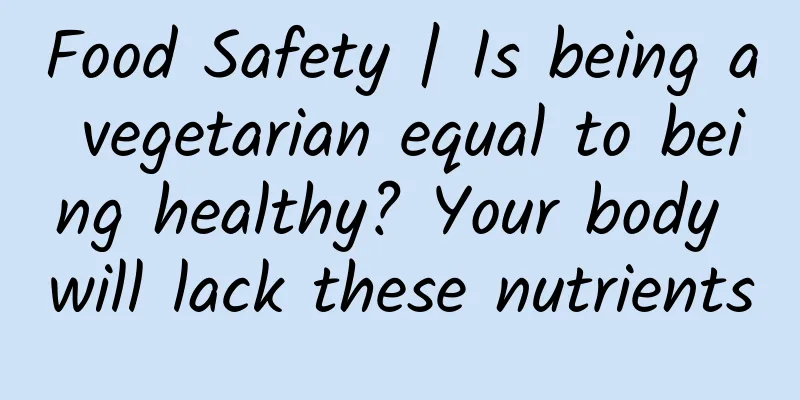Why are there so many taboos about persimmons?

|
Every year when eating persimmons, there are always "persimmon worries", "can persimmons be eaten on an empty stomach", "can persimmons be eaten with seafood, crabs, yogurt, wine, etc."... Benefits of Persimmon Persimmons have the functions of clearing away heat and dryness, moistening the lungs and resolving phlegm, softening hard masses, quenching thirst and promoting the production of body fluids, strengthening the spleen, treating dysentery, and stopping bleeding. Persimmons are rich in pectin, which is a water-soluble dietary fiber that has a good laxative effect. It is very effective in correcting constipation and maintaining the growth of normal intestinal flora. It can also relieve dry coughs, sore throats, and high blood pressure. Therefore, persimmons are natural health foods for patients with chronic bronchitis, hypertension, arteriosclerosis, and internal and external hemorrhoids. Can you eat persimmons on an empty stomach? The main reason for worrying about not being able to eat persimmons on an empty stomach is that the tannic acid in persimmons is too high . High-tannic acid foods do increase the risk of gastric persimmon stones. The reason is that tannic acid may combine with protein (mainly from: protein in food, digestive enzymes in the stomach, and gastric epithelium) under the action of gastric acid to form tannic acid protein, which is difficult to dissolve in water and deposits in the stomach. After condensing into blocks with pectin and plant fibers, gastric stones are formed. In fact, not all persimmons are high in tannin. On the contrary, most commercial persimmons are de-astringent and have a relatively low tannin content. If you eat persimmons on an empty stomach, as long as you don't feel uncomfortable, you don't have to worry about forming stones. I believe that you will not eat unripe persimmons that are so astringent that you can't pull your tongue out. You should know that high tannins are not the only factor in the formation of stones. Low concentration of gastric acid and low gastric motility are also factors in the formation of vegetative gastric stones in the human body. Most patients with gastric persimmon stones now have problems such as low gastric acid and insufficient gastric motility, and many even have gastric ulcers. If you are a gastric ulcer patient or have insufficient gastric motility, it is best not to eat persimmons on an empty stomach, especially unripe persimmons. “Persimmons and yogurt (seafood) cannot be eaten together”? The saying that persimmons are incompatible with other foods is because of tannin. Tannins are widely found in plants and are also called "tannic acid", "tannic acid" or "gallic acid". They are a class of substances. Soluble tannins can combine with proteins to form insoluble precipitates, which cannot be decomposed in the gastrointestinal tract. Acids and alcohols contribute to the formation of such precipitates. However, as mentioned earlier, all persimmons have a huge difference in tannin content (0.4%-4%, the tannin content of fully sweet persimmons can be as low as 0.1% or less after ripening, and the tannin content of astringent persimmons can be as high as 4% or more when they are not ripe). Persimmons with high tannin content may indeed form "gastric persimmon stones" with protein. If you eat a lot of tannins and there is a lot of protein in your stomach, the tannins will form insoluble complexes with the protein and inactivate pepsin. Add to that the pectin, fiber and other ingredients in persimmons, and they will form "gastric persimmon stones", which will block the digestive tract and cause abdominal pain. The legendary "persimmon and crab", "persimmon and yogurt", "persimmon and seafood" cannot be eaten together, because crab, yogurt and seafood are all high-protein foods. Persimmons contain a high content of tannin, and eating a large amount at one time is indeed possible. However, gastric persimmon stones are not fatal. As long as you seek medical attention in time, you can completely solve it. What cannot be eaten together is not "persimmons", but "astringent persimmons". Obviously, what cannot be eaten together with crabs, yogurt, seafood, etc. is not "persimmons", but "persimmons with high tannin content". The human body has a natural "detection device" for tannin - the tongue. Tannin is astringent, and the higher the content, the more astringent it is. So, the answer is simple: don’t eat astringent persimmons! If they are ripe sweet persimmons, or astringent persimmons that have been “de-astringented” and are no longer astringent, then it doesn’t matter if you eat them with these foods; if they are astringent persimmons, it’s not safe to eat them alone, because you can’t know what’s in your stomach! Is it really true that you can’t eat persimmons before or after meals? The astringency of persimmons is due to the high tannin content. Tannins can bind to proteins and make them insoluble, which can reduce the activity of digestive enzymes (all proteins) in the gastrointestinal tract. Therefore, it is traditionally believed that persimmons may affect digestion and absorption. If the gastrointestinal function is weak, it is advisable not to eat persimmons before or after meals. However, if the gastrointestinal function is very good, it is okay to eat persimmons before or after meals. |
Recommend
Science fiction becomes reality: scientists are developing computers powered by human brain cells?!
Audit expert: Zheng Yuanpan, professor at Zhengzh...
Should you turn on iOS privacy tracking? You will understand after reading this
The official version of iOS14.5 has been released...
How do new brands start from 0 to 1?
I feel that PMPM has been quite popular recently,...
Do you know all this about green printing?
As one of the four great inventions of ancient my...
6 ways to monetize your products!
The ultimate goal of a product is often to realiz...
Growing flowers and vegetables reduces the risk of cancer; always feeling depressed and anxious? Do some good deeds | Hot spot review
"Hotspot Review | Major Technology Events of...
Not only the sales of purifiers are growing, but also the haze diamond rings indicate the business opportunities of Industry 4.0
Few people can associate smog with diamonds, but ...
Astra: Fight again and again despite repeated failures, so what if the rocket flies
On August 29, 2021, Astra's "Rocket 3.3&...
What functions does the 400 number have?
There are two main ways for enterprises to handle...
Should you wash raisins before eating them? If you eat them right, they are very sweet, but if you eat them wrong, you will become very fat.
Key Points ★ Bulk raisins can be washed, but rais...
At the end of the year and the beginning of the next year, please keep this safety guide!
According to CCTV News, on the afternoon of Decem...
Deloitte: Global Outsourcing Survey 2024
Our 2024 survey examining the changing landscape ...
Teach you to write a super simple swoole chat room in five minutes
I was originally planning to continue writing my ...





![[Li Jiaoshou] How to formulate a program-based marketing plan?](/upload/images/67cc19c63839b.webp)



